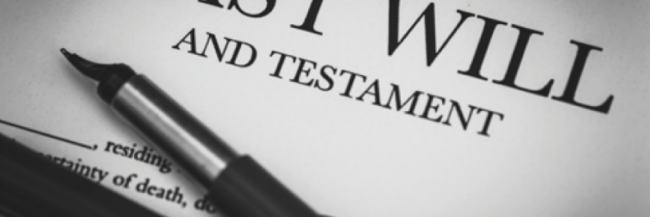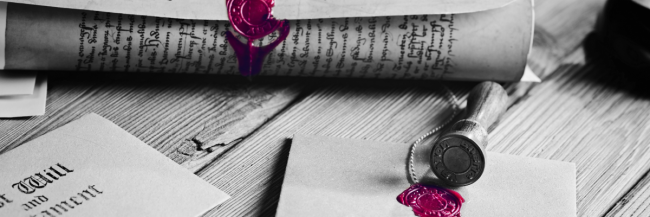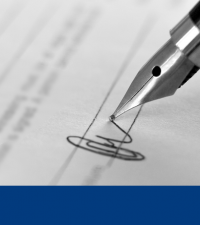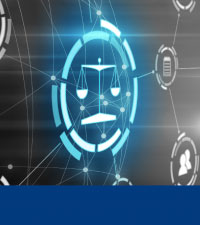Article originally posted on 24 October 2016
Frequently Asked Questions
The loss of a loved one always has devastating effects. Add to that funeral arrangements, application for death certificate, coping with the loss yourself and on top of all that’ you are presented with a whole heap of papers, forms and questions by asset holders of the deceased. You enter a world of confusion and frustration. Below we set out some of the common questions that are often raised.
What is the point of probate and what is it intended to achieve?
The primary objective once someone passes away is to collect all of the assets and settle all of the liabilities of the deceased, in some instances it may be necessary to liquidate the assets. You may need to write to pension providers, investment houses and banks to identify and where necessary collect the assets. Funeral payments will need to be paid and any other liabilities (bills) outstanding at the date of the death of the deceased will need to be settled.
What is a grant of probate?
The grant of probate is a court sealed document that proves the death of the person establishing the will and names the person or persons responsible to deal with the assets and liabilities of the estate and to distribute the surplus to the rightful heirs. This person or people (if more than one) are referred to as the executor(s).
Why apply for probate?
It is likely that the asset holders of the deceased will require a grant of probate as proof as to who can deal with the assets. Acting without a grant of probate will put the asset holder at risk, a risk which they may be unwilling to take. It is sensible to check with the asset holders whether they require a grant of probate, in order that you do not incur any unnecessary cost and time spent, applying for the grant. It maybe that the asset holder will deal with the asset as part of a small estate and may therefore not require the grant.
How much will it cost?
The Isle of Man Government charge fees for applying for probate which depends on the gross value of the estate and are set out below.
| Gross Value of the Estate | Fee |
| Estate does not exceed £10,000 | £28.80 |
| Exceeds £10,000 but does not exceed £50,000 | £170.00 |
| Exceeds £50,000 but does not exceed £125,000 | £499.50 |
| Exceeds £125,000 but does not exceed £250,000 | £1,061.50 |
| Exceeds £250,000 but does not exceed £500,000 | £2,123.00 |
| Exceeds £500,000 but does not exceed £1,000,000…… | £4,245.50 |
| Exceeds £1,000,000 | £8,490.00 |
Fees correct as at 30 November 2021 – source www.courts.im/fees
Property in the sole name of the deceased will need to be taken into consideration as well as bank balances, investments and pensions. Obtaining the latest statement with the latest balance from each asset holder should help in working out the value of that particular asset and in turn the whole estate.
If I pay bills as the executor on behalf of the deceased can I claim the cost back from the estate?
Provided the costs are reasonably incurred and accounted for then yes you can claim back the costs incurred, provided there are sufficient funds to do so. It is always prudent to keep all receipts as evidence of payments you make, in case anything is contested later on.
How do I account for payments and assets?
A set of accounts is required to show all assets being gathered in, all income and all payments out. When all assets are gathered in, for example sold and turned to cash, or bank balances transferred, and all payments made, the set of accounts should be given to each beneficiary for them to sign. This shows their agreement to the accounts and what has been paid out and what has been gathered in absolving you from further unreasonable questions in the future.
Where does the money from the deceased’s bank account go to?
A separate bank account in the name of the executors of the estate should be opened at a local bank. Bank statements should be requested showing movement on the account and all funds from the deceased’s various bank accounts can be received into the estate bank account. You should then organise the closure of the deceased’s bank accounts. This will start the winding up process of the estate.
How do I work out who gets what?
The will of the deceased will state their direction as to what has been left and the name of the person benefitting from receiving the items(s). The items(s) may be referred to as a gift or a bequest or alternatively the person may be an heir to part of the residuary estate.
What is the residuary estate?
This is what is left once all expenses of the estate and all gifts and bequests have been made and again it should be stipulated in the will as to who should benefit.
Do I need to file a tax return?
Yes, a tax return will need to be filed up to the end of the last tax year in which the deceased died. If the deceased did not keep on top of their tax affairs you must bring this position up to date. If the deceased passed away after the 5 April, a return will be required from 6 April to the date of death. Income received by the estate will also be subject to tax. Tax is a complex subject and there are instances where tax returns are due in addition to these returns and as such you should take advice.
Is this it?
Once everything has been given to the relevant beneficiary(s), the bills paid, and accounts closed this then closes off the estate. However, whoever is qualified as executor in most instances remains executor for life and if anything crops up in the future the executor will be called on to deal with this.
The family are arguing and we cannot agree on anything.
What do I do?
As executor it is imperative that you are protected. If you do not understand something or cannot resolve something you should take legal advice. You should not leave yourself open for a claim in the future from the beneficiaries. There are instances which you may need assistance on, for example items that are referred to in the will are not in the deceased’s belongings, or there are insufficient funds to cover specific amounts of cash that are referred to in the will. Estates can be very complex matters and it is important that if an executor is unsure of their position that they seek advice. Even if the family all pull together when the deceased passes it does not mean that the family will not try and make a claim later on. Always seek legal advice and make sure you are protected.
How we can help?
At MannBenham we have experience in making applications for Grants of Probate and Grants of Administration, both for people domiciled in the Isle of Man and those who have assets in the Isle of Man.
If you find yourself in a position of considering whether Probate is required or not, we can help you review the person’s estate and give you clear guidance on whether Probate is needed.
If Probate applies to you, we can assist you in understanding what steps need to be taken and points that need to be considered and addressed. We can also help you in administering the estate and can provide executorship services.
Our in-house accounting team is also experienced in drawing and maintaining the required estate accounts and filing of estate tax returns and can help you with this. Should you wish advice regarding Probate or just wish to understand your options, please feel free to speak with one of our Probate team on 01624 639350.
This guidance only provides a brief overview of some of the frequently asked questions relating to Isle of Man probate. It should not be taken as providing legal advice or as providing a comprehensive guide. No person should act in reliance on any statement contained in this guide without first obtaining specific legal advice.







